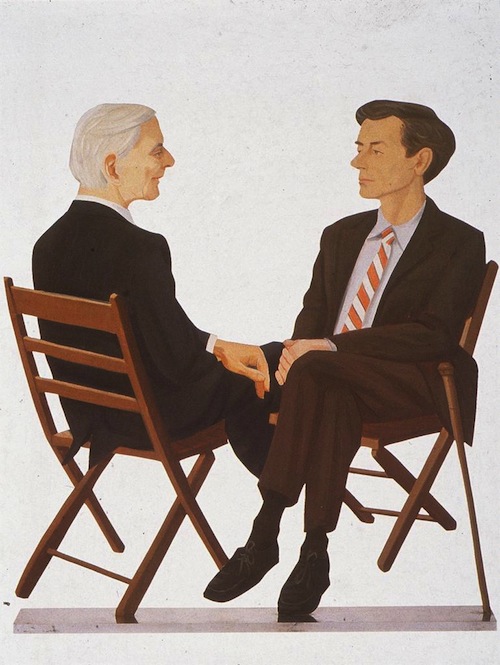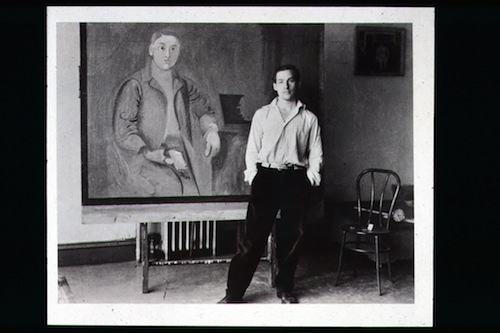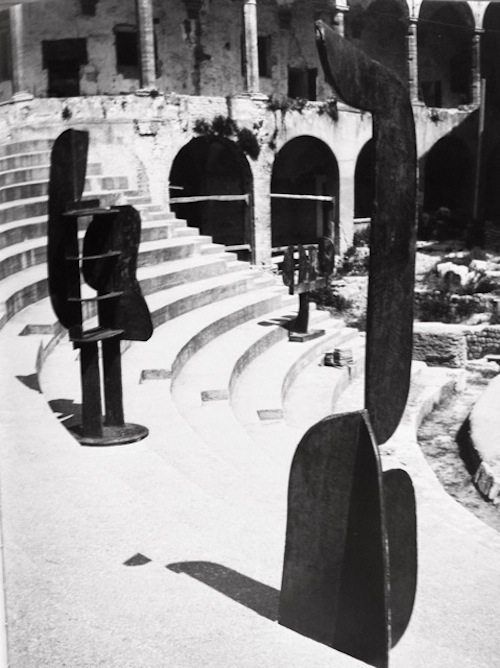
All art is collaboration. You collaborate with your culture, your language, your reading …. When Bernadette Mayer says of her writing “It’s as if the language wants to say this,” she acknowledges the proper relation of matter to genius. Or, as Joe Brainard put it, giving “advice to a collage maker: ‘Do not try to “arrange” your objects; let them help you formulate.” As an artist, you collaborate with history, the past, the art—poetry, paintings, dance, whatever—that you admire. You don’t so much control as work with your materials, which inevitably include yourself, whatever may be your most intimate facts. You collaborate with your peers, either directly (that is, you write works together) or not (that is, by parallel creations you form the work that comes to be recognised as that of a period style, the art of your time). Competitiveness is a form of collaboration. Addressing an audience—conceiving an addressee, a reader or viewer, for the work—you collaborate with that shifting phantasmagoria. Such sociability is what puts the work in the world.
—B. B., from “Working with Joe,” 2002
This is such an old chestnut of mine by now, but I can’t help feeling it needs some continual putting across—especially the last three or four sentences—in terms of sociability, including what might be called ethics, or even good manners. Anyone’s general sense of contemporary poetry has to contend, maybe as ever, with huge nether regions of specific disgust. Far from advancing any sort of moral code, I just want it acknowledged that disgust is an ethical response. (An exemplary disgust would be the one Frank O’Hara expressed, when interviewed by Edward Lucie-Smith, over Robert Lowell’s behavior, poetical and otherwise, in one of his late-night confessionals.) “Manners” because anything you write is likely to be taken as something actually put forth within earshot, and who’s kidding who is ever a question of moment. The stories keep coming, but I find less life in the realms of resentment, solipsism and melodrama, which is to say, the penchant for a Poetry of Affliction, whereby the “all-too-circumstantial” (another O’Hara phrase, too, that merits notice) gets paraded as Soap Opera. Life on Earth might demand a more mouth-watering poetry.
You can see where this is, or was, headed. A fair caution just wafted in from the gentle genius David Rattray (Opening the Eyelid, Diwan, 1990): "My worst feelings come from a bad opinion of others; my best from from a good one of myself." I want to put aside my Poetry of Affliction rampage, which will only be taken as crankdoodle, curmudgeonly, envy-driven and hopelessly inhumane. To put it (more) mildly, we could just as well let it go by applying the Golden Rule to matters of utterance in art—do unto others, and so on. But for ethics, or some idea of a good time, it is interesting that, in all honesty, such positive values are best brought in the back way in negatives and slid across the table before anyone has noticed the serious distinction that’s being made. Hesiod and Ovid both define the Golden Age largely by what bad stuff hadn’t happened yet (“toil and grief”), or else some remote promise to distract “happy mortals, unconcern’d for more.”

Two other instances, both a lot closer to home, are Edwin Denby’s memoir of what he saw in his neighbor de Kooning’s 1930s paintings:
that is, a moral image. [Their] beauty….reminds me of the beauty that instinctive behavior in a complex situation can have––mutual actions one has noticed that do not make one ashamed of one’s self, or others, or of one’s surroundings either. I am assuming that one knows what it is to be ashamed. The joke of art in this sense is a magnanimity more steady than one notices in everyday life, and no better justified.
And this, from O’Hara on David Smith’s sculptures:
They present a total attention and they are telling you that that is the way to be. On guard. In a sense they are benign, because they offer themselves for your pleasure. But beneath that kindness is a warning, don’t be bored, don’t be lazy, don’t be trivial and don’t be proud. The slightest loss of attention leads to death.

And lastly at my back I hear:
Yet I ride by the margin of that lake . . .
. . . . .
and have a small boy's notion of doing good.
—from Robert Creeley, "The Way"
Born in New York in 1939, Bill Berkson was a poet, critic, teacher and sometime curator, who became ...
Read Full Biography

